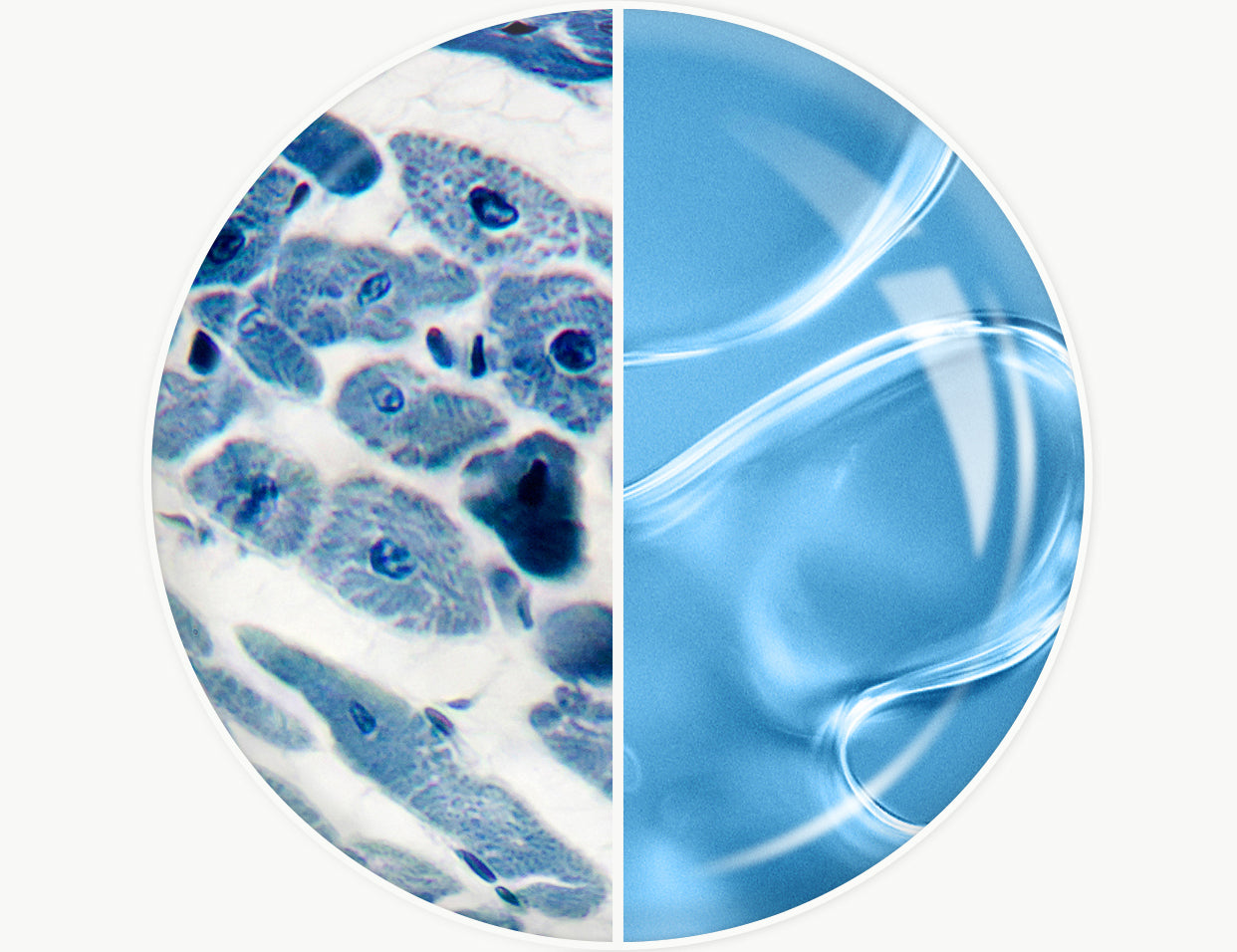What Is Ectoin?
Ectoin is a naturally-derived compound known for its impressive protective qualities. As a skincare ingredient, it shields the skin against moisture loss and defends it from environmental aggressors—including free radicals, air pollutants, and harsh climate conditions.
Ectoin has been clinically proven to support a stronger skin barrier, enhance hydration levels, and provide calming relief. It’s incredibly helpful and effective in products formulated to nourish and protect the skin barrier.
What Type Of Skin Is Ectoin Best For?
Ectoin is suitable for every skin type, including sensitive, dry, and reactive skin. It works by creating a protective barrier on the skin while also providing hydration and nourishment. This is what makes it so gentle and effective at the same time. And it’s why we used it as the star ingredient of our Reactive Skin Solutions 5% Ectoin Cream: A soothing and protective spot cream for symptomatic patches of skin. It’s also a supporting ingredient in our polyglutamic acid serum formula (Multi-Quench Plumping Hydration Serum), which is clinically tested for 48-hour hydration.
What is Hyaluronic Acid?
Hyaluronic acid is a naturally occurring substance found in our bodies that can also be produced synthetically through fermentation for cosmetic purposes. As a key component of the extracellular matrix (ECM) molecules, hyaluronic acid plays a vital role in maintaining skin integrity at the cellular level. In cosmetics, hyaluronic acid is available in various molecular weights to address specific skin concerns, such as fine lines or dehydration.
Lower molecular weight hyaluronic acid is clinically known to go further into the skin, while higher molecular weight tends to remain on the surface, offering a subtle tightening effect that can reduce the appearance of fine lines.
In formulation, hyaluronic acid's water-holding capacity allows it to form a gel matrix at low concentrations. This not only hydrates the skin but also contributes to the viscosity of the formula at certain percentages.
What Type Of Skin Is Hyaluronic Acid Best For?
Hyaluronic acid is suitable for all skin types. For fine lines and wrinkles, consider a lower molecular weight hyaluronic acid. For hydration and flaky skin, a higher molecular weight or a formula with multiple molecular weights is recommended.
Is Ectoin or Hyaluronic Acid Better for Hydration?
Hyaluronic acid is a powerful humectant that draws moisture from the environment into the skin, providing intense and deep hydration on many levels.
Ectoin, on the other hand, helps maintain skin hydration by forming a protective barrier that prevents water loss and shields against environmental stress.The research shows that ectoin is highly effective at improving skin hydration and reducing symptoms like dryness and itching. Topical formulations with up to 7% ectoin were well-tolerated and helped reduce the need for stronger medications. Ectoin offers a safe steroid-free option for managing skin inflammation and supporting the skin barrier (1).
While both ectoin and hyaluronic acid enhance skin moisture, hyaluronic acid primarily boosts hydration, while ectoin stabilizes and locks moisture in, making it especially beneficial for sensitive or dry skin prone to dehydration. Both ingredients can work synergistically together and provide long lasting hydration benefits.
Prequel’s Reactive Skin Solutions 5% Ectoin Cream combines ectoin with powerful humectants such as urea and hydroxyethyl urea to provide a 360 approach to skin hydration.
Is Ectoin or Hyaluronic Acid Better for Skin Barrier Protection?
Both ectoin and hyaluronic acid support the skin barrier but in different ways. Hyaluronic acid is a natural component of the skin’s extracellular matrix and plays a key role in maintaining the barrier function. Ectoin, however, helps protect the barrier long-term by forming a hydration shield, preventing moisture loss and environmental damage. Together, they complement each other by working through distinct mechanisms to enhance skin hydration and overall barrier health.
(1)https://pmc.ncbi.nlm.nih.gov/articles/PMC8850511/
DISCLAIMER: All skin care articles are intended to help educate on specific ingredients and skin care topics. Our articles are written to be informative and informational. Any reference to a specific patient experience is not a medical suggestion for treatment. Please note that any Prequel products with referenced ingredients are formulated for Cosmetic Use Only and NOT intended as replacements for physician advice and/or pharmaceutical product recommendations.




